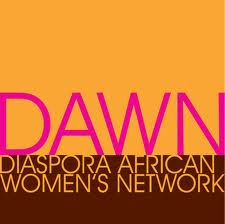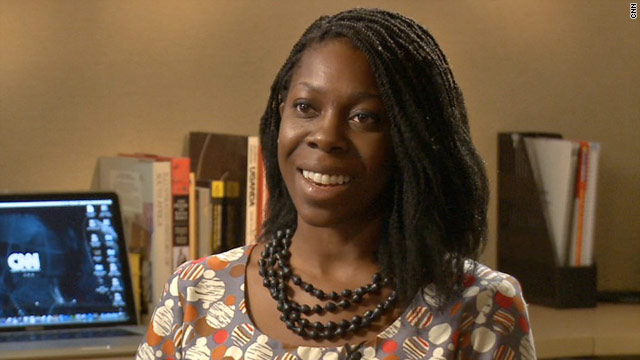African Women in Tech: Learn More about SpeakYoruba App Developer, Abake Adenle
In my last post about the challenges of learning African languages in adulthood, I mentioned that there aren’t as many resources available to help people (re)learn African languages (as compared to the suites of products available to learn western or eastern languages like French, Spanish, Mandarin, etc).
However, due to innovations in e-learning — including the use of smartphones, this is changing; African language learning resources are becoming more readily available and accessible to not just Africans, but the entire world.
Take for instance a new app developed by mobile content developer AJA.LA: SpeakYoruba is the first in a series of mobile apps aimed at preserving and promoting African languages. According to the site:
“SpeakYoruba is perfect for kids young and old looking to build a basic Yoruba vocabulary, or for anyone with an interest in African culture, music and heritage!”
As the African diaspora continues to expand its borders, the need to promote and preserve African languages becomes increasingly important. Through the SpeakAfrica Apps project, the team aims to develop a series of apps capturing the aesthetic beauty of African culture and providing a modern platform linking Africa’s diaspora with heritage African culture.
I recently interviewed the lead developer for the SpeakYoruba app, Abake Adenle, a Nigerian diaspora living in the U.S. about her motivation for developing the app, including its reception so far.
Side Note: I must say, I was already pretty excited to have discovered the app, but I was even more thrilled to learn a women tech entrepreneur was behind it. We need more e-language-learning tools for African languages in the world, but we need more African women entrepreneurs in technology and innovation, too. #proud
Check out the short interview with Abake Adenle posted below.
SPECTRA: This app has created a way to connect Diaspora to their home countries, namely first generation Yoruba Nigerians for now. How much pressure are you getting from other Nigerians to produce apps for the other languages?
ABAKE: A lot! Before the app launched Techloy (Nigeria’s top tech blog) posted about the app and numerous people on twitter started asking about when a version for their language would be made available. Since the app launched in the Apple App store, I’ve asked users to provide feedback on additional features and updates for the app, and beyond developing a version for Android, expansion to other languages has been the most frequent request.
SPECTRA: Do you have any interesting stats on the users who have downloaded the app so far? Where are they based? Age range? Nigerian or other Diaspora?
ABAKE: The majority of downloads come from the US and UK (with most coming from the US) and only a handful of downloads coming from Nigeria, which is pretty much in line with my expectations and broader app download trends. I think the most interesting “trend” I’ve noticed is interest in the app from what I call the “young adult” demographic. I initially designed the app with children in mind thinking their parents would download the app for their kids, but so far most of the downloads seem to come from “young adults” looking to build basic Yoruba language skills.
SPECTRA: Which other languages are in the pipeline? (Don’t worry, we won’t hold you to it)
ABAKE: At the moment, I am working on adding more cool features and tools to SpeakYoruba, developing a version for Android and hopefully expanding to include more languages popular across West and East Africa :)
SPECTRA: Beyond teaching people the basics of African languages? Do you see any other uses for the app thus far?Â
ABAKE: I think SpeakYoruba is a great platform for presenting various aspects of Yoruba culture in a modern way. For example the app’s soundtrack is a Yoruba folk song performed by Baba Ken Okulolo, one of Nigeria’s high-life legends. The song is one of the things people say they like most about the app and I am extremely happy to be able to use a Yoruba song/a piece ofYoruba culture many children may not get the chance to hear in a way that is modern, fun and educational.
SPECTRA: It’s refreshing to see African women in technology. Most power lists in technology coming out of Africa contain men predominantly? Your thoughts?
ABAKE: It is unfortunate that more women aren’t part of the “tech scene”, especially in Africa. However, I think it is important that women who are there now, women like Sheryl Sandberg and Ory Okolloh, should be recognized. Also, there are numerous programs in place outside and within Africa encouraging women to participate in technology. Hopefully, with each new generation, we’ll see more and more women becoming part of the tech scene.
SPECTRA: What are some of YOUR favorite apps?Â
ABAKE: My favourite apps are usually news-related (New York Times, Bloomberg, etc.) or just good old iBooks as I have been reading more and more books on my iPad. One standout app for me is BeatSneak Bandit, a fantastic game by Swedish gaming company Simogo; it’s pretty addictive!
SPECTRA: Anything else you’d like people to know?Â
ABAKE: I am currently running a promotion where anyone who sends proof of download (a screenshot showing the SpeakYoruba app icon) to info@ajalaco.com will receive a free “I Can Speak Yoruba” t-shirt or tote bag! I am very pleased with the feedback the app has received so far and am looking forward to updating the app with more and more features and expanding to more languages. Download links can be found at www.SpeakYorubaApp.com!
SPECTRA: How do you say, Love Is My Revolution, in Yoruba?Â
ABAKE (taking the hint…): Download the app ;)
Check out the SpeakYouruba App trailer below:

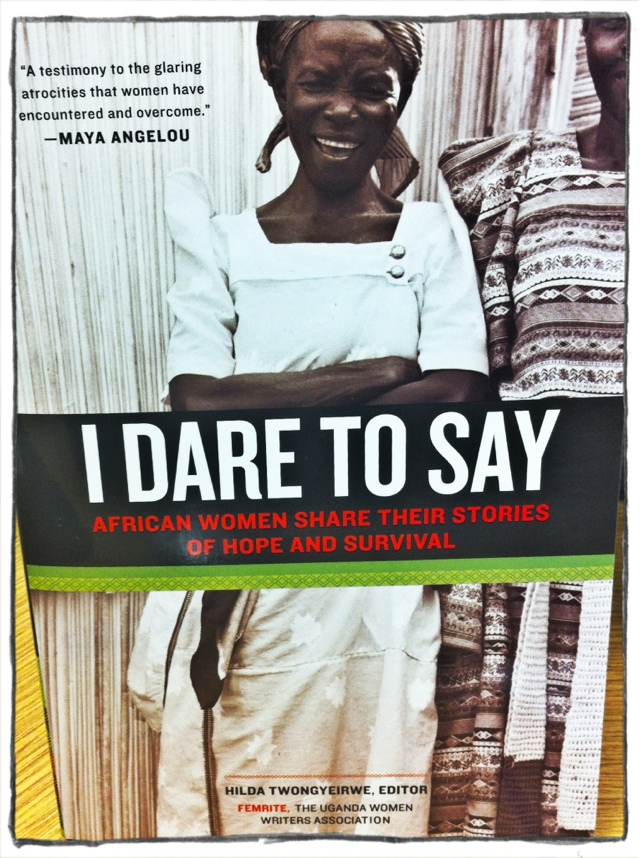
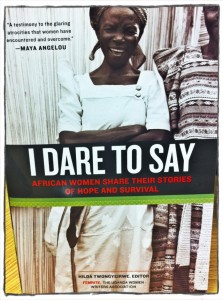 I first learned about “I Dare to Say”, a new anthology of African women sharing their stories of hope and survival, after I’d recently decided that, when it came to writing about Africa, I would
I first learned about “I Dare to Say”, a new anthology of African women sharing their stories of hope and survival, after I’d recently decided that, when it came to writing about Africa, I would 
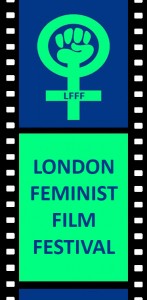 If you’re an African woman filmmaker (or know of any) who identifies as a feminist or has produced a film exploring feminist themes, please submit! The deadline for submissions is August 31st, so you still have time to prepare your reel.
If you’re an African woman filmmaker (or know of any) who identifies as a feminist or has produced a film exploring feminist themes, please submit! The deadline for submissions is August 31st, so you still have time to prepare your reel.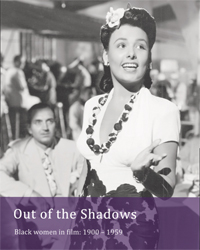 Incidentally, the LFFF has confirmed Jacqueline Williams, author of
Incidentally, the LFFF has confirmed Jacqueline Williams, author of 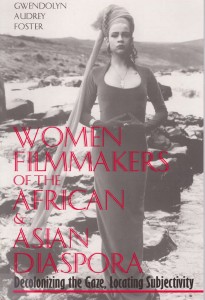 As with many feminist spaces, the
As with many feminist spaces, the 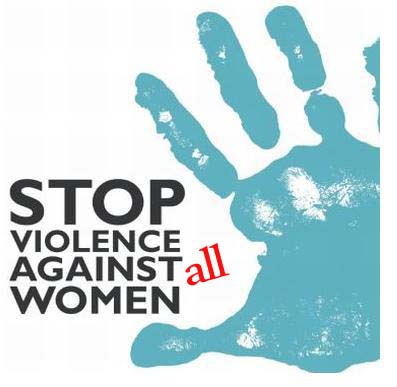
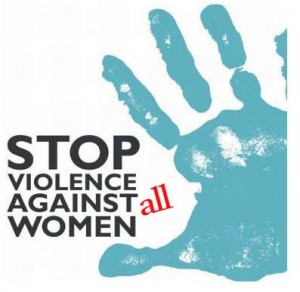
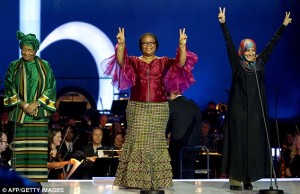 For one, a clear stance against using culture as an excuse for the mistreatment of women is already included in this protocol. In fact, President Sirleaf of Liberia arguably earned her presidency on a platform that challenged tradition; her work advocating for the rights of women has even
For one, a clear stance against using culture as an excuse for the mistreatment of women is already included in this protocol. In fact, President Sirleaf of Liberia arguably earned her presidency on a platform that challenged tradition; her work advocating for the rights of women has even 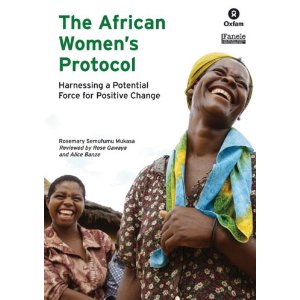 I foresee some resistance to this of course. In my experience, many African women (even those doing human rights work), much like Liberia President Sirleaf, still view discrimination based on gender identity and sexual orientation as separate from women’s issues, often paralleling them when they should be discussing them as intrinsically connected. But the same “traditional” gender roles that keep women trapped in
I foresee some resistance to this of course. In my experience, many African women (even those doing human rights work), much like Liberia President Sirleaf, still view discrimination based on gender identity and sexual orientation as separate from women’s issues, often paralleling them when they should be discussing them as intrinsically connected. But the same “traditional” gender roles that keep women trapped in 